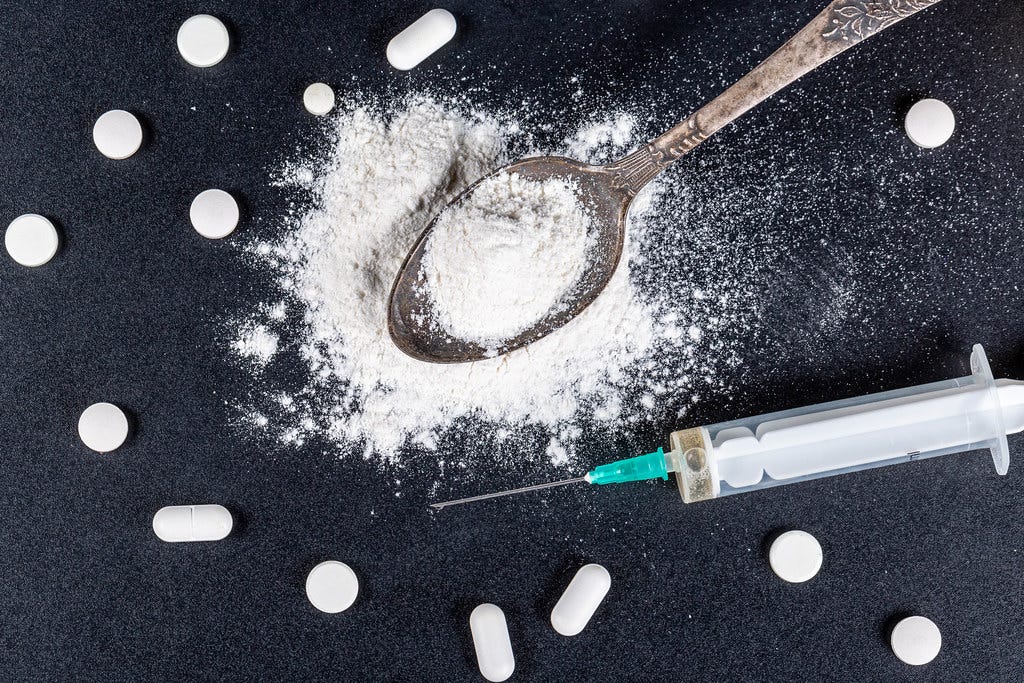No, Decriminalization Doesn't Lead To More Overdose Deaths!
A recent study determined that drug decriminalization did not cause a rise in fatal overdoses in Oregon and Washington.

There are few things people want to be true like they want it to be true that punishment will prevent other people from doing bad things. It’s understandable, because who doesn’t want things to be simple? Who doesn’t want things to make sense? If people are doing bad things, punish them. If they keep doing bad things? Well, that just means the punishment wasn’t harsh enough, so punish them more.
That’s the approach we’ve taken to crime in this country. It’s also the approach we’ve often taken towards drug use, especially during the War on Drugs (which, notably, did not go well).
But, for a while, it seemed like things were starting to change. Marijuana has been decriminalized or legalized in many states, and in 2021, both Oregon and Washington decriminalized drug possession. It was a step in the right direction, though not everyone has agreed. There was a rise in overdose deaths afterwards, which many quickly assumed had something to do with the decriminalization. Washington, this May, decided to walk it back, making drug possession a gross misdemeanor punishable by up to 180 days in jail.
A recent study, however, proves that decriminalization did not have any effect on the number of overdose deaths.
The study, published in JAMA Psychiatry last month, took a close look at overdose deaths in Washington and Oregon over a year and determined that although there was a rise in overdose deaths, decriminalization didn’t have anything to do with it.
Using data from the other 48 states and the District of Columbia, researchers from New York University Grossman School of Medicine created “synthetic” versions of Oregon and Washington that hadn’t decriminalized drug possession. They found that it was not statistically different from the number of overdoses that would have happened had possession continued to be criminalized.
Right now, there is an extreme danger that certain drugs will be laced with Fentanyl, which has “actual death” as a common side effect. If people know that taking a drug comes with a high probability of death and they are taking it anyway … why on earth would anyone think that the possibility of a prison sting would deter them? And how many people out there would suddenly decide to take a drug that could kill them just because they wouldn’t land in jail over it?
Another thing that can lead to death, by the way, is quitting certain drugs cold turkey — specifically benzodiazepines, opiates and even alcohol. As appealing as some might find the idea of a heroin addict saying “Oh, you know what? I’m gonna pass, because I don’t want to go to jail!” might be, that is something that could actually kill them or make them very sick. There is a reason methadone clinics exist.
The fact is, there is not really a good, works-every-time-for-every-person answer to dealing with addiction, outside of just working to keep people alive so that they at least have the chance to kick it. What we do know is that looking at it as a crime doesn’t actually help anything.
If we want to prevent overdoses and deaths from drugs, harm reduction is the way to do that. Things like making Fentanyl test strips and NARCAN widely available can do a lot to help. If we want people to stop taking drugs, we should invest in clean, safe, free rehab centers instead of prisons.
Sometimes the most effective solution to a problem is not the most cathartic one.



OT: Awww, say it ain't so, Qev!
No Lie with Brian Tyler Cohen:
Kevin McCarthy is now considering resigning from Congress after being humiliated last week as the first Speaker to ever be ousted.
https://www.politico.com/news/2023/10/06/kevin-mccarthy-considers-resigning-congress-00120381
Housing for all. Put a roof over people's heads, *not* conditional on quitting one's addictions, gives folks the emotional and mental space to decide to quit for themselves, and the resources to tap into. And even if they don't, what's the downside of letting addicts live with some dignity?